Acne marks and scars are two distinct types of blemishes that can occur after a breakout. Acne marks, also known as post-inflammatory hyperpigmentation, are flat, discoloured spots left behind after a pimple heals. On the other hand, acne scars are caused by damage to the skin's collagen and can be raised or depressed.
This comprehensive guide will explore the differences between acne marks and scars, their causes, and effective treatments. We'll delve into the impact of acne severity on scarring and share dermatologist-recommended treatments for addressing acne scars. We'll also provide tips for preventing future breakouts and minimising the risk of scarring.
Whether you're dealing with stubborn acne marks or deep acne scars, there are treatments available to help you achieve the clear, healthy complexion you deserve. Understanding the nature of your blemishes and implementing effective skincare practices can restore your skin's clarity and confidence. So let's dive in and learn how to navigate skin blemishes caused by acne.
Understanding the Difference Between Acne Marks and Scars
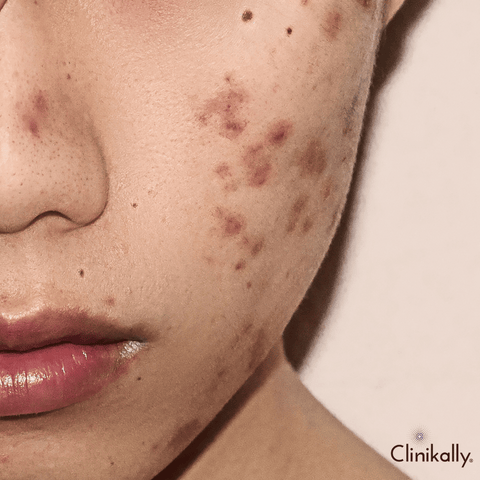
Acne marks and scars are two different types of blemishes that are often used interchangeably. However, they have different characteristics and require different approaches to treatment.
Post-Inflammatory Hyperpigmentation: Acne Marks
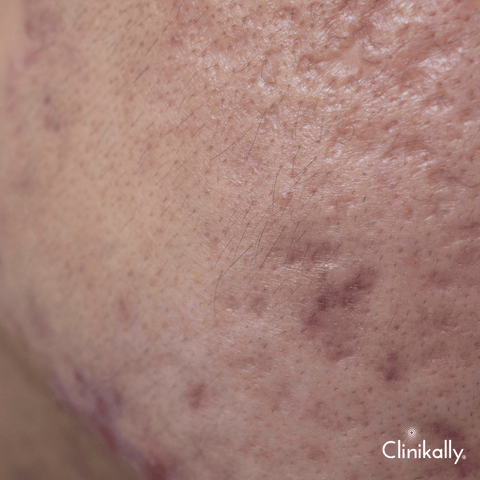
Acne marks are also known as post-inflammatory hyperpigmentation (PIH) and are flat, dark marks that appear on the skin after a pimple has healed. PIH is caused by the overproduction of melanin in response to inflammation and is more common in people with darker skin tones. These marks can take several months to fade and may persist for years without treatment.
Atrophic, Hypertrophic, and Keloid Scars: Acne Scars
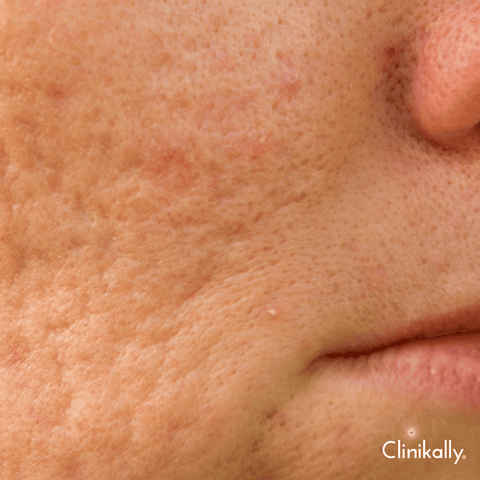
Acne scars are permanent depressions or raised bumps on the skin that form when the acne blemish damages the skin's underlying structure. There are three main types of acne scars - atrophic, hypertrophic, and keloid scars.
Atrophic scars are depressions in the skin that occur when collagen and tissue are lost. These scars can be shallow or deep, usually wider than the original blemish.
Hypertrophic scars are raised, thickened scars that occur when the skin produces too much collagen during healing. These scars are usually limited to the area of the original blemish.
Keloid scars are raised, thickened scars that extend beyond the original blemish area and may continue to grow over time. Keloid scars are more common in people with darker skin tones and may be itchy or painful.
The Impact of Acne Severity on Scarring
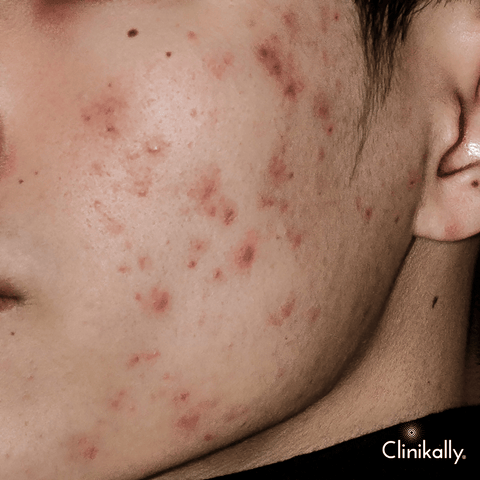
The severity of acne can impact the likelihood and severity of scarring. Severe acne that involves deep cysts and nodules are more likely to result in scarring than mild to moderate acne. Additionally, picking or squeezing acne blemishes can increase the risk of scarring.
Treating Acne Marks and Supporting Skin Healing
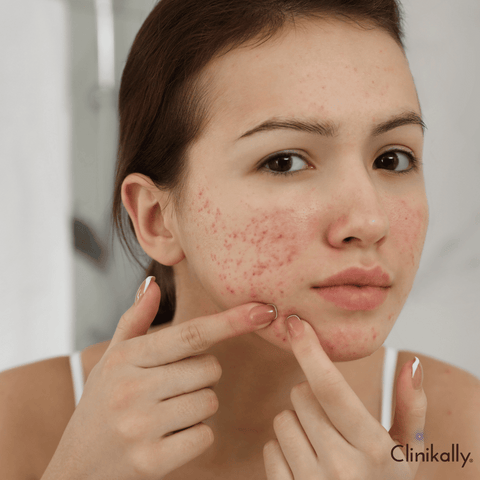
While acne marks and scars can be frustrating to deal with, there are several ways to treat and prevent them.
Skincare Routine for Acne-Prone Skin
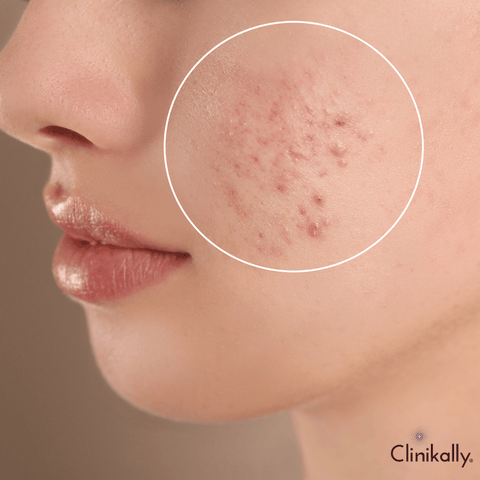
A consistent skincare routine can help prevent future breakouts and support skin healing. Look for products that are non-comedogenic, meaning they won't clog your pores, and avoid harsh scrubs or physical exfoliants that can irritate the skin.
Topical Treatments to Fade Acne Marks
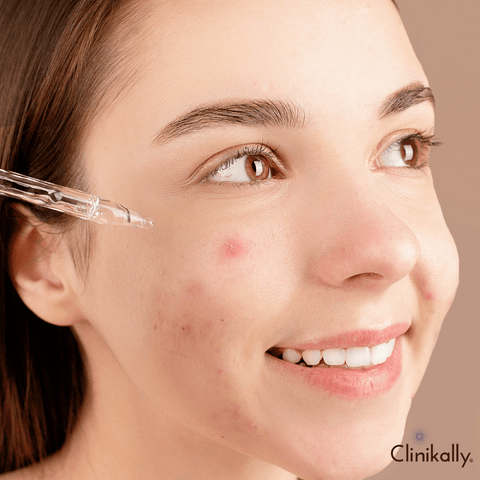
Topical treatments can help fade acne marks and improve skin texture. Ingredients like vitamin C, niacinamide, and azelaic acid can help reduce hyperpigmentation and improve skin clarity. Retinoids are also effective in treating acne marks and stimulating collagen production, which can improve the appearance of atrophic scars.
Sun Protection and Skin Discoloration Prevention
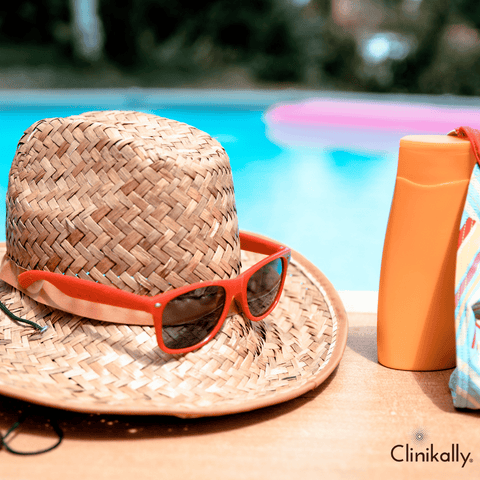
Sun exposure can exacerbate skin discoloration and increase the risk of scarring. Be sure to use broad-spectrum sunscreen with an SPF of 30 or higher and avoid prolonged sun exposure. Additionally, wearing protective clothing, like hats and long sleeves, can help prevent skin damage and discoloration.
Addressing Acne Scars and Professional Treatments
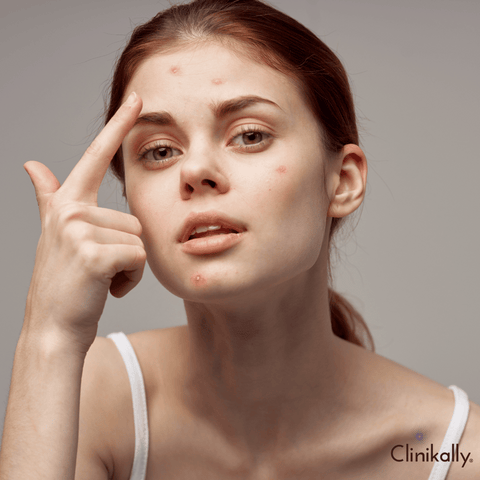
While acne marks can typically be treated with over-the-counter topical products and a consistent skincare routine, acne scars often require more advanced treatments. There are a variety of professional treatments available to address acne scars, including those recommended by dermatologists.
Dermatologist-Recommended Scar Treatments
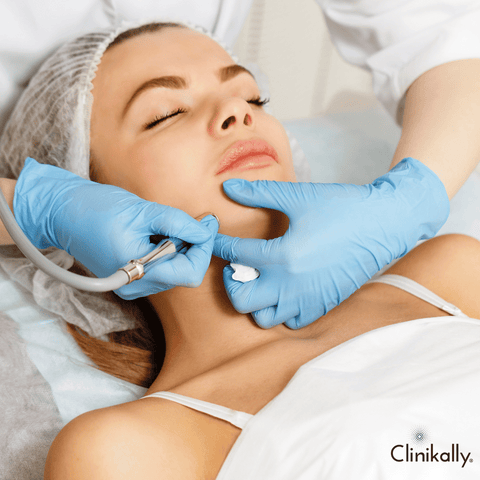
Dermatologists may recommend a variety of treatments for acne scars, depending on the severity and type of scarring. Some popular options include:
-
Injectables: Dermatologists may use injectables, such as fillers, to help plump up depressed scars and create a smoother appearance.
-
Surgery: In some cases, surgical procedures like punch excision, punch elevation, and subcision may be recommended to remove or lift deep scars.
-
Dermabrasion: Dermabrasion involves removing the top layer of skin with a special device to reveal a smoother, more even complexion. This treatment is typically reserved for more severe scarring.
Chemical Peels and Laser Therapy
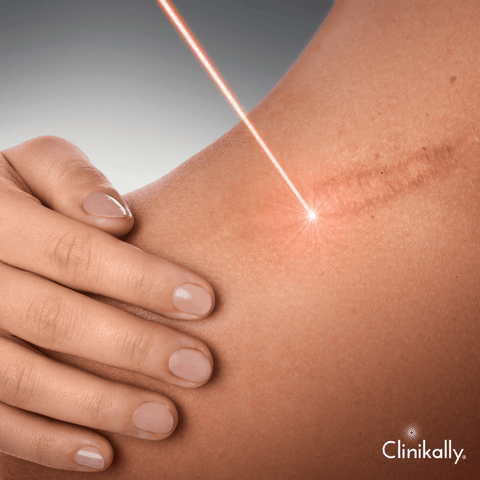
Chemical peels and laser therapy are also popular options for treating acne scars. Chemical peels involve applying a solution to the skin that causes the top layer to peel away, revealing fresh, new skin underneath. Laser therapy uses targeted beams of light to stimulate collagen production and promote healing in the skin.
Both chemical peels and laser therapy can be effective for treating acne scars, but they do come with some risks and potential side effects. It's important to see a dermatologist to determine the best treatment plan for your individual needs.
Microdermabrasion and Microneedling
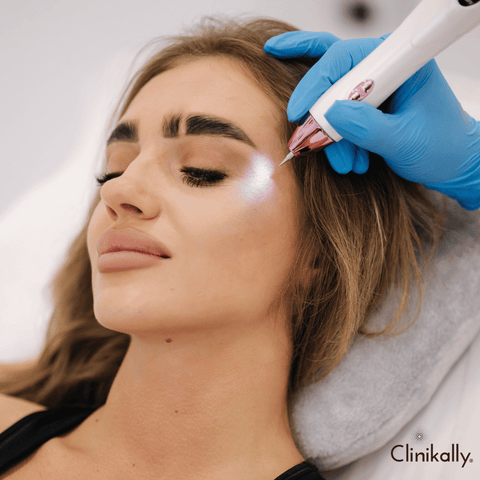
Microdermabrasion is a non-invasive treatment that uses a special device to exfoliate the top layer of skin. The device uses a stream of fine crystals or a diamond tip to gently remove the outer layer of dead skin cells, revealing a smoother, brighter complexion. Microdermabrasion can be an effective treatment for acne scars as it helps to improve skin texture and reduce the appearance of shallow scars. On the other hand, microneedling involves using a device with tiny needles to create micro-injuries in the skin, which triggers the body's natural healing response and stimulates collagen production. The new collagen helps to fill in depressed scars and smooth out the skin's texture. While microdermabrasion and microneedling may not be as intense as chemical peels or laser therapy, they can still be effective in improving the appearance of acne scars. It's important to note that both treatments require multiple sessions to see significant results, and it's important to discuss your options with a dermatologist to determine the best course of action for your individual needs.
Conclusion: Restore Your Skin's Clarity and Confidence
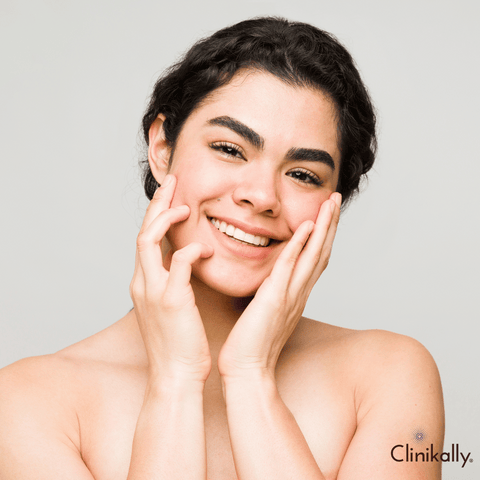
Dealing with acne marks and scars can be frustrating, but there are a variety of treatments available to help restore your skin's clarity and confidence. Whether you're using over-the-counter topical products or seeking professional treatments from a dermatologist, consistency is key. Stick to a skincare routine that works for you and be patient with the process.
Remember, preventing future breakouts is just as important as treating existing blemishes. Protect your skin from the sun, use non-comedogenic products, and avoid picking at your skin to minimise the risk of scarring.
With the right approach, it's possible to minimise the appearance of acne marks and scars and restore your skin's natural beauty. Don't be afraid to seek professional guidance if you're struggling with acne scarring – there are plenty of effective treatments available to help you achieve the clear, healthy complexion you deserve.

































1 comment
Siddharth Bhogta
Can you suggest a serum that remove scars and acne marks ?
Can you suggest a serum that remove scars and acne marks ?